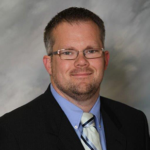Protecting and Transforming Childhood

Childhood is the best part of many people’s lives. The good memories can include hours of imaginative play, giggling with friends, riding bikes, enjoying holidays, and getting lots of hugs from mom, dad, or other caretakers who provided love and support.
But for a significant portion of the population, childhood also evokes painful memories. Many adults experienced bad things when they were children including physical, sexual or emotional abuse; chronic neglect; or were exposed to divorce, domestic abuse, substance abuse and mental illness.
Childhood Adversity Is Common… and Harmful
If you are someone who had these negative experiences, you’re not alone. Researchers from Kaiser Permanente and the Centers for Disease Control and Prevention who conducted the groundbreaking Adverse Childhood Experiences (ACE) Study were surprised to find that these experiences are fairly common. In the sample of nearly 17,000 participants, 28% reported exposure to physical abuse and 21% reported being sexually abused during childhood. Over 40% reported being exposed to two or more different adverse childhood experiences and 12.5% reported four or more exposures in childhood (Feletti, et al, 1998).
But what’s even more surprising is that the study showed a link between childhood experiences and later-life health. People who experienced adversity in childhood are much more likely to develop chronic health problems such as heart disease, cancer, substance abuse, diabetes and depression. Problems in childhood can interrupt healthy brain development or promote unhealthy behaviors, causing a ripple effect of serious physical health problems long into adulthood. In high doses childhood adversity can even shorten a person’s lifespan by as much as 20 years.
Because childhood experiences, both positive and negative, have such a tremendous impact on lifelong health and opportunity, health experts and researchers are identifying adverse child experiences as a top priority to address the many major public health issues in the United States.
Prevent Childhood Adversity and Build Resilience
The solution has at least two parts: first, prevent child maltreatment by strengthening families, and second, help individuals and communities become more resilient so they can move past negative experiences.
With its many partners, KVC is actively involved in advancing both strategies. The goal of the new KVC Institute is to transform the experience of childhood for all children by advancing health and wellness. Protecting and transforming childhood means ensuring that all children have safe, stable, nurturing relationships and environments. There are many research-backed approaches that governments and communities can put into practice to strengthen families and champion positive parenting skills. Another way to help is sharing the core story of neuroscience so that people understand how vitally important childhood experiences are; healthcare costs soar and entire communities suffer when any child is allowed to experience adversity.
The second strategy, building resilience, means helping people build the skills and resources needed to buffer the toxic levels of stress and adversity. KVC is actively engaged in several resilience-building initiatives. For example, KVC is part of Resilient KC in the greater Kansas City area. This group is working to build a trauma-aware and resilient community. One of Resilient KC’s first steps has been to put the Adverse Child Experiences survey online and learn about the community’s exposure to adversity.
Across the nation KVC is building resilience in youth and adults every day through its in-home therapy, outpatient behavioral healthcare, and psychiatric treatment centers. KVC has developed a set of emotion
regulation tools and brain strengthening exercises. Our staff help vulnerable, traumatized youth build their resilience by practicing ways to calm down, gain control over their emotions, think critically, and engage
in healthy habits so they can make decisions that are in their own best interest.
Join Us
Will you join us in protecting and transforming childhood, promoting mental health and building resilience? You can:
- Take the ACE survey (below) to understand your exposure level
- Talk openly about mental health to reduce stigma
- Advocate for investments in families and early childhood education
- Strengthen relationships with your friends and family and be a supportive friend to others
- Nurture a positive view of yourself, keep challenges in perspective and maintain a hopeful outlook
- Take care of yourself — exercise, eat well and rest. Some people also journal about their experiences, meditate or engage in spiritual practices.
(Source: APA)
By preventing adversity and building resilience, we can take a big step toward protecting and transforming childhood … and all the wonderful memories it should hold.

 James Roberson, L.M.S.W.,
James Roberson, L.M.S.W.,
Vice President of Program Services, KVC Hospitals
Suzanne Lohrbach, M.S., LICSW,
Executive Director, KVC Institute for Health Systems Innovation
ACE Survey
These questions are the basis of the historic Adverse Childhood Experiences (ACE) Study. Find out your ACE score and risk for negative health outcomes. Count 1 if the answer is yes.
Prior to your 18th birthday:
1. Did a parent or other adult in the household often or very often… swear at you, insult you, put you down, or humiliate you? or act in a way that made you afraid that you might be physically hurt?
2. Did a parent or other adult in the household often or very often… push, grab, slap, or throw something at you? or ever hit you so hard that you had marks or were injured?
3. Did an adult or person at least 5 years older than you ever… touch or fondle you or have you touch their body in a sexual way? or attempt or actually have oral, anal, or vaginal intercourse with you?
4. Did you often or very often feel that… no one in your family loved you or thought you were important or
special? or your family didn’t look out for each other, feel close to each other, or support each other?
5. Did you often or very often feel that… you didn’t have enough to eat, had to wear dirty clothes, and had no one to protect you? or your parents were too drunk or high to take care of you or take you to the doctor if you needed it?
6. Were your parents ever separated or divorced?
7. Was your mother or stepmother: often or very often pushed, grabbed, slapped, or had something thrown at her? or sometimes, often, or very often kicked, bitten, hit with a fist, or hit with something hard? or ever
repeatedly hit over at least a few minutes or threatened with a gun or knife?
8. Did you live with anyone who was a problem drinker or alcoholic, or who used street drugs?
9. Was a household member depressed or mentally ill, or did a household member attempt suicide?
10. Did a household member go to prison?Now add up your “Yes” answers: _____ This is your ACE Score.
Related articles:
- Brain Science-Infused Policies Achieve Healthier Outcomes for Children and Families
- 5 Things Every Child Needs for Good Mental Health
- Healing From the Life-Long Effects of Childhood Trauma
- Addiction Is Not A Moral Failure…It’s a Brain Disorder
- Resilient KC Aims to Increase Mental Health Awareness
- The Brain Can Change… And That Changes Everything
- How Brain Science is Changing Government Policy in America
- Documentary Series Reframes Child Health and Development in America
- The Biological Consequences for Children Living in Poverty… and What We Can Do
- How Childhood Trauma Affects Health Across a Lifetime
- KVC Selected for International Brain Science Initiative




